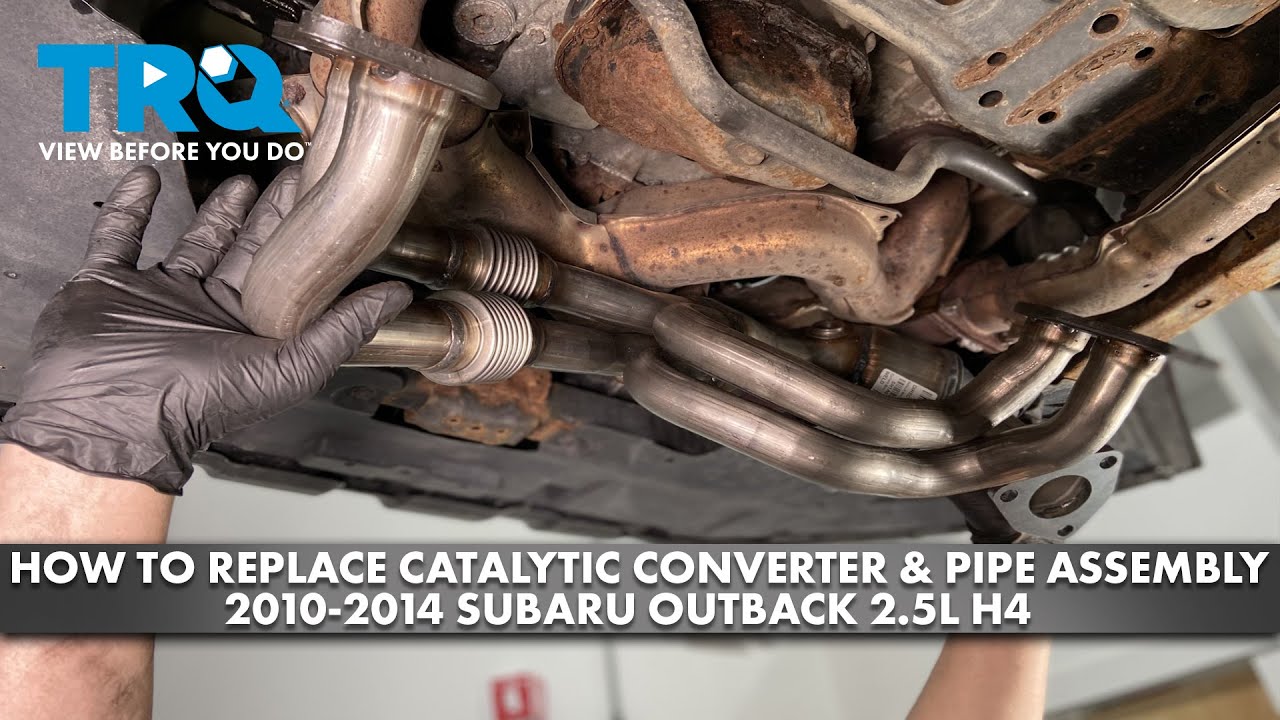Cost To Replace Catalytic Converter Subaru

The dreaded check engine light illuminates, and the code reader spits out a P0420 – Catalyst System Efficiency Below Threshold (Bank 1). For Subaru owners, particularly those with models known for boxer engine quirks, this often signals the beginning of a costly repair: catalytic converter replacement. Let's delve into the factors influencing the cost of replacing a catalytic converter on your Subaru, covering everything from OEM parts to aftermarket alternatives, labor considerations, and potential hidden expenses.
Understanding Catalytic Converter Function and Failure
Before we break down the financials, it's crucial to understand the converter's role. This vital component is responsible for reducing harmful emissions like hydrocarbons (HC), carbon monoxide (CO), and nitrogen oxides (NOx) into less harmful substances through chemical reactions. Over time, several factors can lead to its failure:
- Contamination: Excessive oil consumption (a common issue in some older Subaru models), coolant leaks, or fuel additives can poison the catalyst material.
- Overheating: Misfires cause unburnt fuel to enter the converter, leading to extreme temperatures and damage.
- Physical Damage: Road debris can physically damage the converter housing or internal substrate.
- Age and Wear: Like any component, catalytic converters degrade over time, losing their efficiency.
Cost Breakdown: Parts and Labor
The primary cost driver is, unsurprisingly, the catalytic converter itself. Expect a significant price difference between OEM (Original Equipment Manufacturer) parts and aftermarket alternatives. Here’s a general idea:
- OEM Catalytic Converter: For a genuine Subaru replacement, you're looking at a price range of $800 to $2,000 or more, depending on the model and year. These are typically direct-fit units, ensuring proper fitment and emissions compliance.
- Aftermarket Catalytic Converter: Aftermarket options can range from $200 to $800. While significantly cheaper, be cautious. Not all aftermarket converters meet EPA standards, and some may be of questionable quality, leading to recurring issues. Ensure the converter is CARB (California Air Resources Board) compliant if you live in California or a state that follows California emissions regulations.
Labor costs will vary depending on your location and the complexity of the job. The location of the catalytic converter also plays a role. Some Subaru models, like the Outback and Forester, may have the converter integrated into the exhaust manifold, making replacement more involved. Expect labor costs to range from $150 to $500. Factors influencing labor time include:
- Rust and Corrosion: Rusty bolts and exhaust components can significantly increase the time required for removal and installation.
- Accessibility: The converter's location and surrounding components can impact accessibility.
- Shop Rate: Labor rates vary widely between independent shops and dealerships.
Hidden Costs and Considerations
Don't forget to factor in these potential additional expenses:
- Oxygen (O2) Sensors: It's often recommended to replace the O2 sensors along with the catalytic converter. Faulty O2 sensors can contribute to converter failure and prevent the new converter from functioning optimally. Budget an additional $50 to $200 per sensor, plus labor for replacement.
- Exhaust Gaskets and Hardware: Replacing worn exhaust gaskets and hardware is essential for ensuring a proper seal and preventing leaks. This typically adds a minor cost of $20 to $50.
- Diagnostic Fees: If you haven't already diagnosed the issue, expect to pay a diagnostic fee (typically $80 to $150) to determine the cause of the check engine light.
- Related Repairs: The catalytic converter failure may be a symptom of an underlying engine issue, such as excessive oil consumption or a misfire. Addressing these issues is crucial to prevent premature failure of the new converter. This could add significant cost.
Making an Informed Decision
Before committing to a catalytic converter replacement, get quotes from multiple shops, including both dealerships and reputable independent mechanics specializing in Subaru vehicles. Ask about the brand and warranty of the converter being used. Discuss the possibility of replacing the O2 sensors and exhaust hardware. Finally, inquire about any potential underlying engine issues that may have contributed to the converter's failure. By understanding the costs involved and addressing potential root causes, you can ensure a successful and long-lasting repair for your Subaru.
Remember that neglecting a failing catalytic converter can lead to decreased fuel economy, poor engine performance, and, most importantly, increased emissions that harm the environment. Addressing the issue promptly is essential for maintaining your Subaru's performance and complying with emissions regulations.
